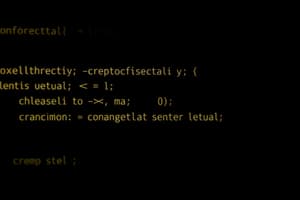Podcast
Questions and Answers
What is a function in Python?
What is a function in Python?
A named code block that performs a job or returns a value.
Why are functions used in Python?
Why are functions used in Python?
To avoid copying code for repetitive tasks and to divide a large program into smaller, more manageable parts.
What types of functions are available in Python?
What types of functions are available in Python?
Built-in functions and user-defined functions.
What is included in the definition of a function?
What is included in the definition of a function?
What is included in the function body?
What is included in the function body?
How is a function used in Python?
How is a function used in Python?
What are parameters in a function?
What are parameters in a function?
What is the purpose of a return statement in a function?
What is the purpose of a return statement in a function?
What is the purpose of using functions in Python?
What is the purpose of using functions in Python?
What is included in a function definition in Python?
What is included in a function definition in Python?
What is a parameter in Python?
What is a parameter in Python?
What is the purpose of a docstring in a function definition?
What is the purpose of a docstring in a function definition?
What is the correct syntax for calling a function in Python?
What is the correct syntax for calling a function in Python?
What is the purpose of the return statement in a function?
What is the purpose of the return statement in a function?
Can a function in Python have multiple parameters?
Can a function in Python have multiple parameters?
Are parameters and arguments interchangeable in Python?
Are parameters and arguments interchangeable in Python?
What is the syntax for adding an element to the end of a list?
What is the syntax for adding an element to the end of a list?
What is the index of the last element in a list?
What is the index of the last element in a list?
How do you remove an element from a list by its value?
How do you remove an element from a list by its value?
What is the syntax for changing an element in a list?
What is the syntax for changing an element in a list?
What is the index of the second last element in a list with 10 elements?
What is the index of the second last element in a list with 10 elements?
Flashcards are hidden until you start studying
Study Notes
Python Functions: Defining, Calling, and Using Parameters
- A function is a named code block that performs a job or returns a value.
- Functions are used to avoid copying code for repetitive tasks, and to divide a large program into smaller, more manageable parts.
- Python has built-in functions and allows for user-defined functions.
- A function definition includes the def keyword, function name, and parentheses to specify any necessary parameters, and always ends with a colon.
- The function body includes the code to be executed, and can include a docstring to describe the function's purpose.
- To use a function, it must be called by its name and any necessary arguments in parentheses.
- Arguments are passed to a function as parameters, which are used as variables within the function body.
- A function can return a value using the return statement, which can be assigned to a variable or used directly.
- Functions can have multiple parameters, separated by commas, and must be passed the correct number of arguments.
- Parameters and arguments are not interchangeable; parameters are defined in the function definition, while arguments are passed when calling the function.
- User-defined functions can make code more readable, testable, and maintainable.
- Functions can be used for a variety of tasks, from simple print statements to complex calculations and interactions with user input.
Python Functions: Defining, Calling, and Using Parameters
- A function is a named code block that performs a job or returns a value.
- Functions are used to avoid copying code for repetitive tasks, and to divide a large program into smaller, more manageable parts.
- Python has built-in functions and allows for user-defined functions.
- A function definition includes the def keyword, function name, and parentheses to specify any necessary parameters, and always ends with a colon.
- The function body includes the code to be executed, and can include a docstring to describe the function's purpose.
- To use a function, it must be called by its name and any necessary arguments in parentheses.
- Arguments are passed to a function as parameters, which are used as variables within the function body.
- A function can return a value using the return statement, which can be assigned to a variable or used directly.
- Functions can have multiple parameters, separated by commas, and must be passed the correct number of arguments.
- Parameters and arguments are not interchangeable; parameters are defined in the function definition, while arguments are passed when calling the function.
- User-defined functions can make code more readable, testable, and maintainable.
- Functions can be used for a variety of tasks, from simple print statements to complex calculations and interactions with user input.
Studying That Suits You
Use AI to generate personalized quizzes and flashcards to suit your learning preferences.




